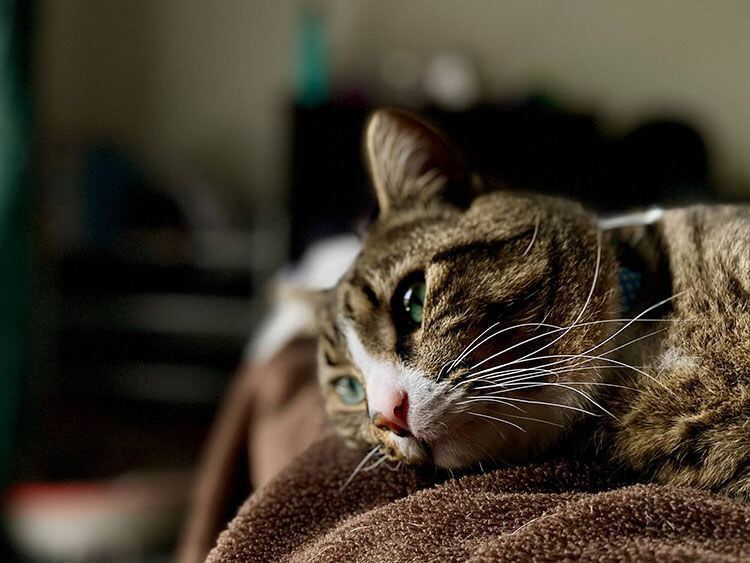

Manage Your Cat’s Health
We’re all about keeping pets safe and healthy. If you notice your cat’s behavior or health start to change, you might want to look into Feline Leukemia Virus (FeLV) and Feline Immunodeficiency Virus (FIV). While both viruses have no cure or treatment and a cat infected will carry the virus for life, there are some measures you can take to manage your cat’s health.
What is FeLV & FIV?
FeLv is an infectious disease commonly occurring where there are multiple cats gathering, such as in a household with several cats or outside areas where cats may congregate. The progression of FeLV can vary depending on what cells are infected. FIV shares similar symptoms to HIV (human immunodeficiency virus) and results in a declining white blood cell count. Some cats can harbor the virus but show no signs for many years.
FeLV
How FeLV Spreads
First off, be assured that FeLV cannot be transmitted to humans, dogs, or other animals. Be extra vigilant with younger kittens, though, because those under 4-6 months are the most susceptible because their immune systems aren’t fully developed.
Preventing Cats from Contracting FeLV
While transmission can occur through milk, blood, feces, urine, or saliva of an infected cat, the way transmission most commonly occurs is through saliva. This is often through grooming. That’s why it’s advisable to avoid sharing dishes and to discourage licking, biting, or grooming if an infected cat is present.
Signs of FeLV
In the early stages, signs and symptoms of FeLV include: loss of appetite, fever, lethargy, weight loss, pale gums, and a poor coat or fur. As it progresses, a cat with FeLV may exhibit: slow healing of wounds, anemia, or chronic infections of the skin, bladder, and upper respiratory systems.
FIV
How FIV Spreads
FIV is species-specific meaning it will not spread from humans to cats or vice versa. While FIV is found in the blood, saliva, and cerebrospinal fluid of infected cats, the most common form of transmission is through bite wounds.
Preventing Cats from Contracting FIV
Male cats are twice as likely to contract FIV because of their natural habit to roam for long ranges and fight with other cats while outdoors. Getting your cat neutered can help minimize this tendency and keep both your cat and other cats safe.
Signs of FIV
Watch and observe your cat for these signs if you suspect FIV: poor appetite, weight loss, inflammation in the mouth, sinus infections, diarrhea, and fever.
Proactive Care
Get Your Cat Tested & Vaccinated
When bringing home a new cat or kitten, it’s wise to have them tested at your veterinarian’s office before introducing them to any other cats. It’s crucial to get your kitten or cat vaccinated to avoid contracting an infection, especially if they spend time outdoors or live in a multi-cat household.
A Turn for the Better
In the past, cats would often be euthanized if they tested positive for FELV or FIV. Thankfully, after a great deal of research has gone into learning more about the diseases, we now know it’s possible for these infected cats to live long lives. However, carefully targeted care and cautious measures to stop the spread to other cats is necessary. Specifically, infected cats should remain indoors to avoid the risk of exposure and should be spayed or neutered in order to not pass the disease on to offspring.
How to Care for a Cat With FeLV or FIV
Keep in close communication with your veterinarian and develop a plan to manage the care of your cat with FeLV or FIV, including regular vaccinations and parasite prevention. Scheduling a check-up every six months can help you keep tabs on your cat’s health. With the right care, an infected cat can avoid developing a secondary infection and have an improved quality of life. Every bit of proactive care helps!
